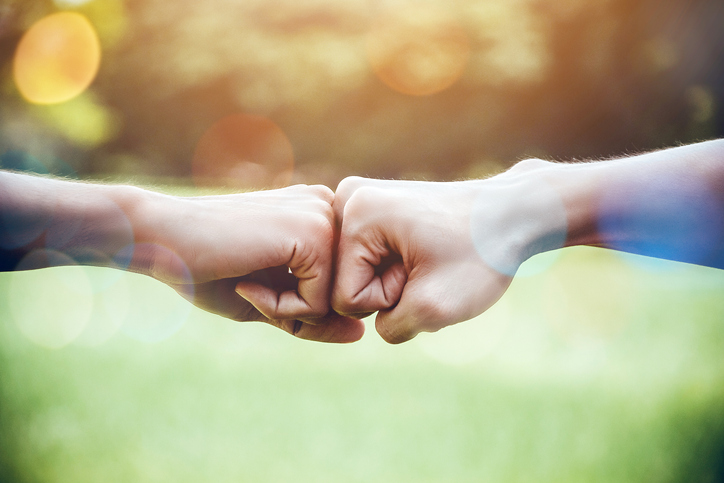Opinion
Common cause
Allies and activists
In Short
Nothing about us without us doesn’t mean only us
Can non-disabled allies serve in leadership positions of organizations advocating for and serving individuals with disabilities? Can this be done without overshadowing or subverting the voices of people with disabilities as leaders of their own movement?
That Depends.


iStock
If it comes from the top-down “we know what’s best,” “we’re just trying to help you” ableist ethos, then the answer would be no.
If, however, it comes from a place of collaboration, inclusiveness and raising the voices of individuals with lived disability experience, then yes. In fact, would it not be considered exactly what society should look like; individuals with disabilities and non-disabled individuals working together for a common cause? Could one not argue that it is in fact the goal, real inclusion?
If the disabled community were to say only people with lived disability experience can advocate for individuals with disabilities, wouldn’t that exactly be the opposite of inclusion?
Nothing about us without us doesn’t mean only us. It means all of us but always keeping front of mind that the voices of people with lived disabilities must be heard, must be included at the tables of power and influence. They must be part of all conversations that impact the disabled community. And if a non-disabled activist is truly an ally “nothing about us without us” will always be in the fore front of all conversations, all activism and all policies and decisions. A true ally will always advocate for disabled representation, accessibility and inclusion wherever and whenever disability issues present- which in truth is always and everywhere.
In fact, it seems that the word ally has taken on a negative connotation. Couldn’t a non-disabled person be empathetic enough to the cause and advocate alongside individuals with disabilities? Why does it seem there is a sentiment that non-disabled advocates are not credible advocates? Without allies where would we be. To dismiss their expertise, empathy and knowledge does a disservice to the community. The flipside of this is that we must never dismiss the voices of people with disabilities who have the lived experience. A true ally would never argue the point that disabled voices must be heard, but aren’t all voices who advocate for the rights of people with disabilities essential.
This may sound like heresy to some and may get our membership card in the disability rights movement revoked, but is it heresy or strength in numbers?
We are 2 women in the disability field; one of us is a blind woman with 55 years of lived experience as a disabled person and as a disability advocate. The other of us is a woman with 28 years of experience in advocating for the inclusion of people with disabilities in all aspects of life and creating and ensuring opportunities for people with disabilities (the disparity of years only reflects the disparity in our ages not our commitment to disability rights).
Both of us see the world from a lens of inclusion, both of us see society’s prejudices and misconceptions, we both see the lack of accessibility and we both fight for inclusion, accessibility and the rights of people with disabilities.
We are in fact both advocates: one of us happens to be blind and the other does not have a disability, but we both want the same thing a world where people with disabilities are valued, included, have opportunities and belong. We both from our own perspectives understand what that means. We both from our different vantage points have different opportunities to be advocates one of us from a deep in her soul understanding of the challenges people with disabilities face and one from a lived experience of facing those challenges. It is in fact the the concept of strength in numbers at it’s finest and the true definition of symbiosis (2 things that support each other).
We both question the distinction of a disabled person being labeled an advocate but a non-disabled person being an ally. Is the distinction necessary? Is it not possible for us to both just be advocates but one of us is blind and the other of us is not?
Does one of us feel more superior, more expert, or more committed to the cause? No, we recognize each other’s strengths, we support each other and ultimately what is important is that we want the same thing: a world in which disability is just a part of the human experience. An accessible world in which people with disabilities have the same rights and opportunities as non-disabled people. A world in which we welcome, value and include people with disabilities as a matter of course. We both want a world where people of all abilities learn play work live and grow together, a community of belonging.
One of us is disabled and one of us is non-disabled, we have different lived experiences and value those differences, but want the same thing. We are both allies and we are both advocates and neither of us is giving up our memberships in the disability rights movement!!
Michelle Friedman has been a disability advocate for 40 years and is a speaker, children’s book author and is Currently the board chair of Keshet
Jennifer Phillips is an accomplished special education and inclusion professional with more than 28 years of experience in classroom, camp, recreational and residential settings. She is currently the president and chief executive officer of Keshet.












